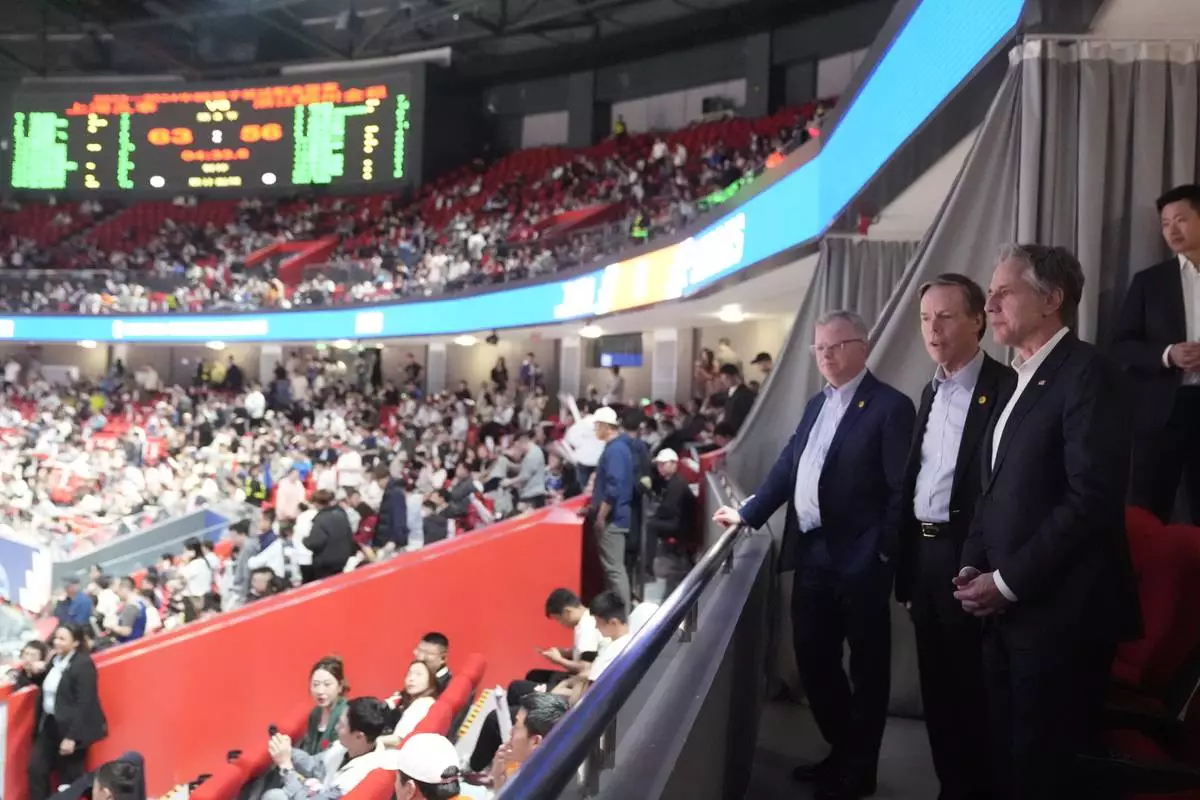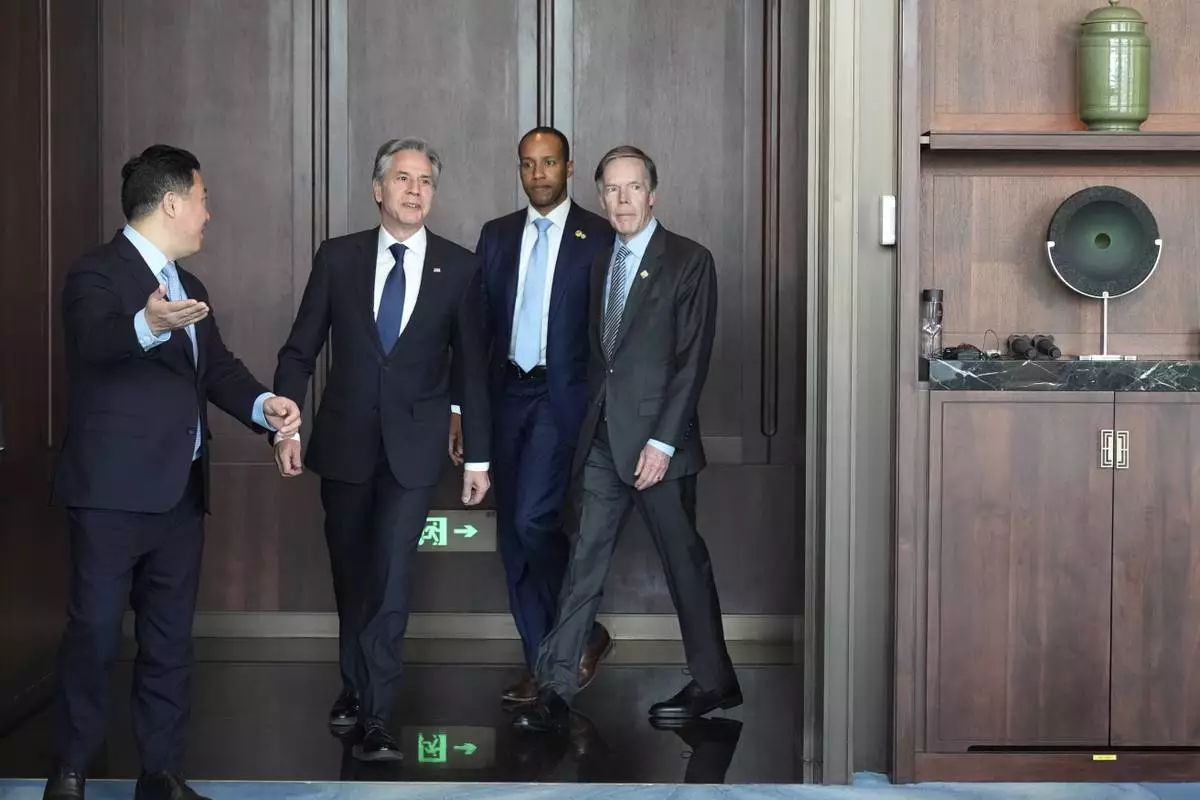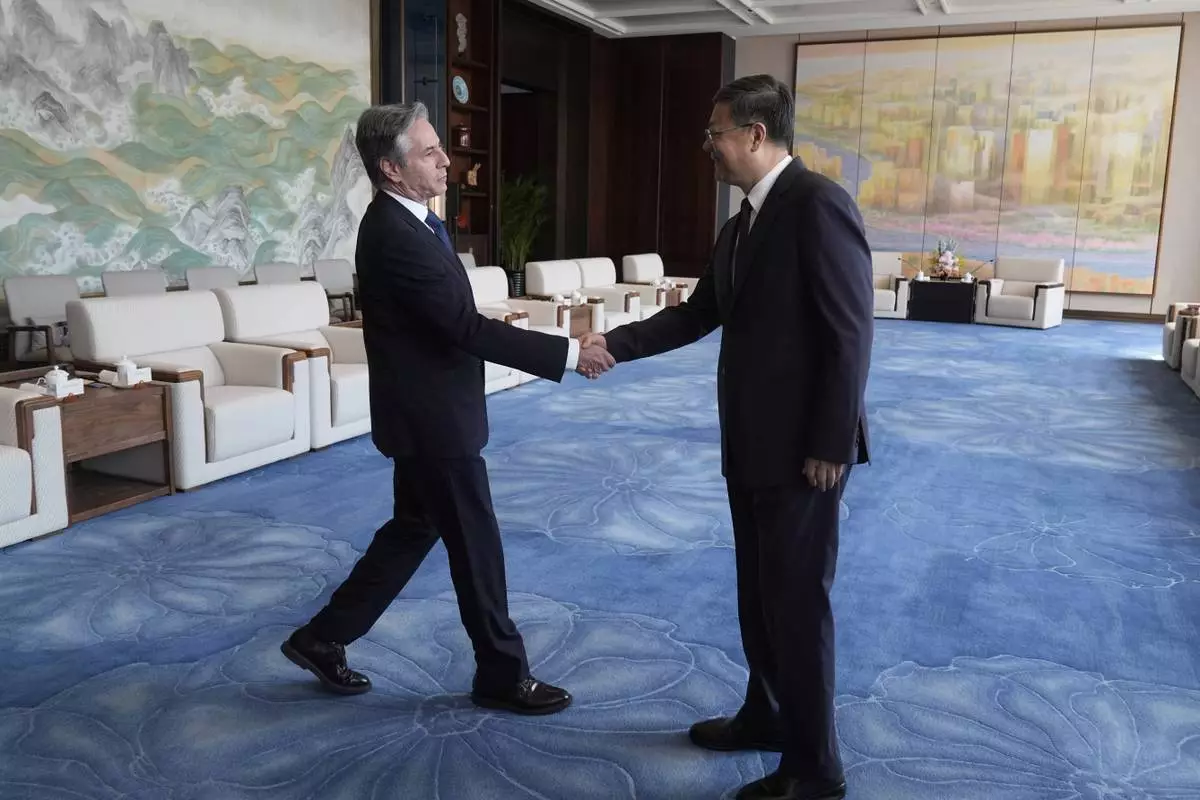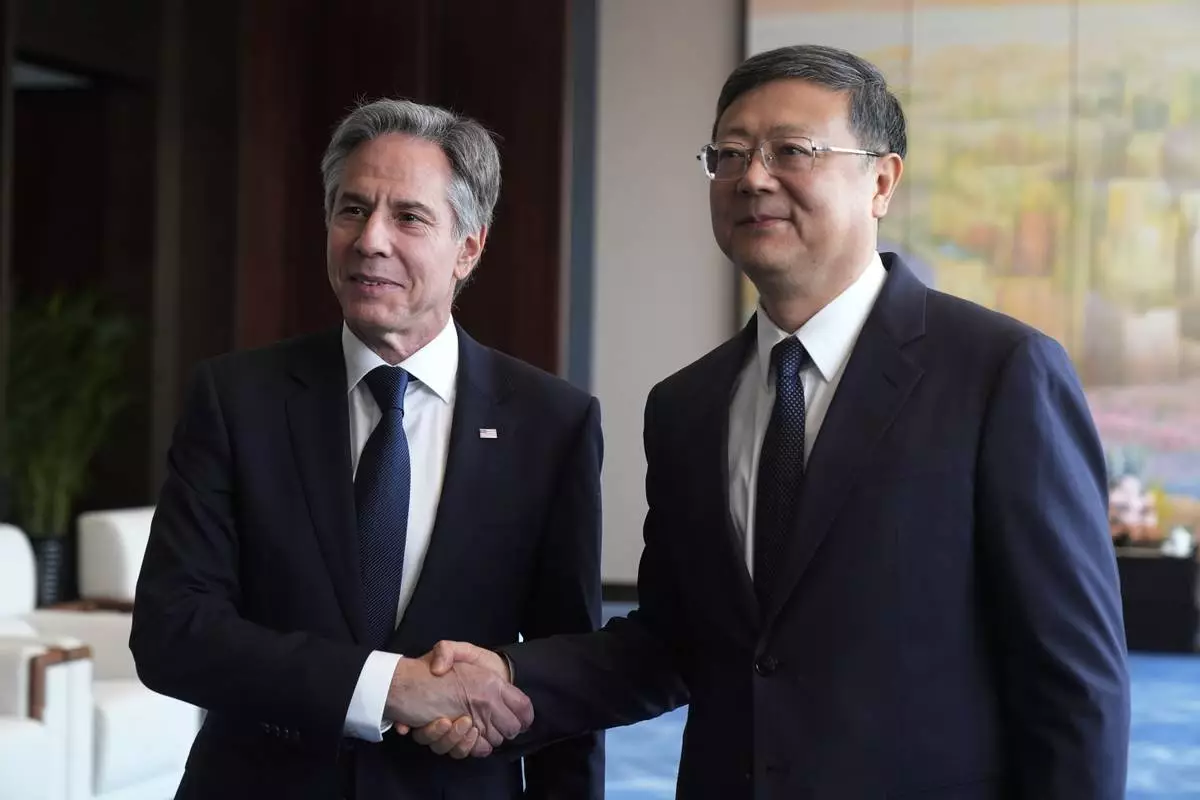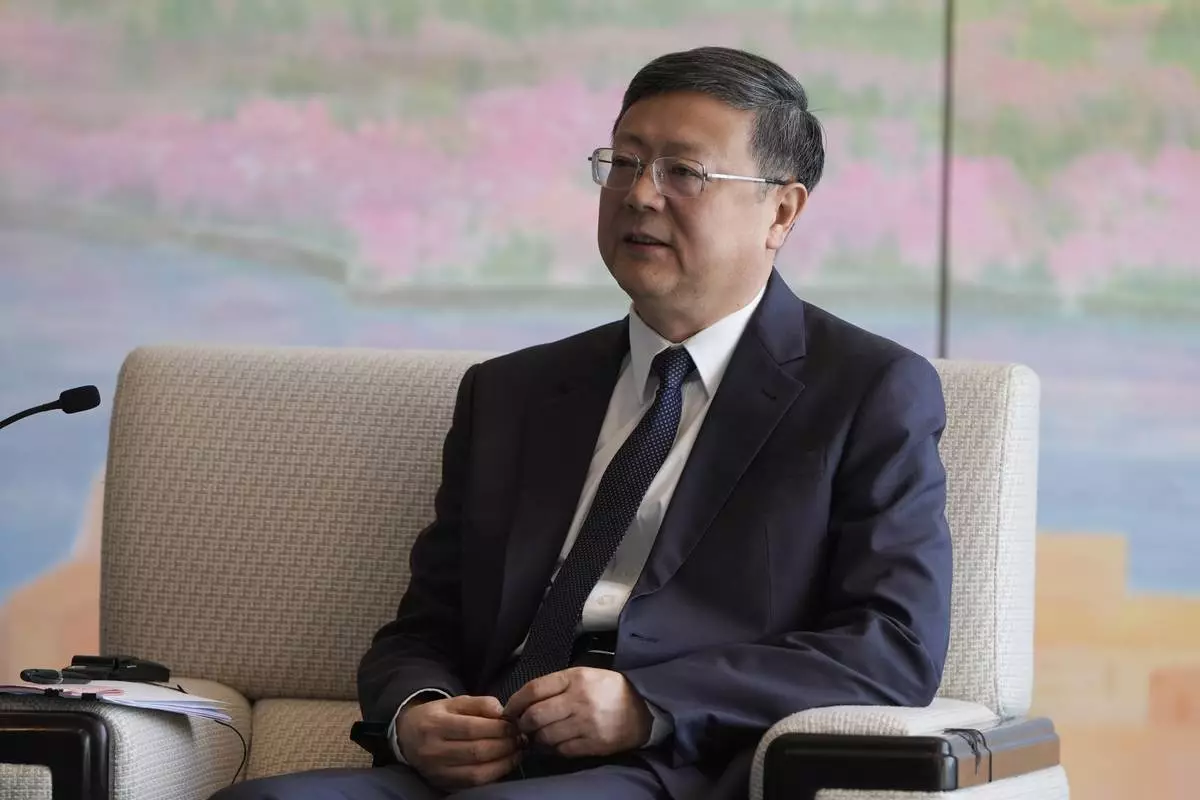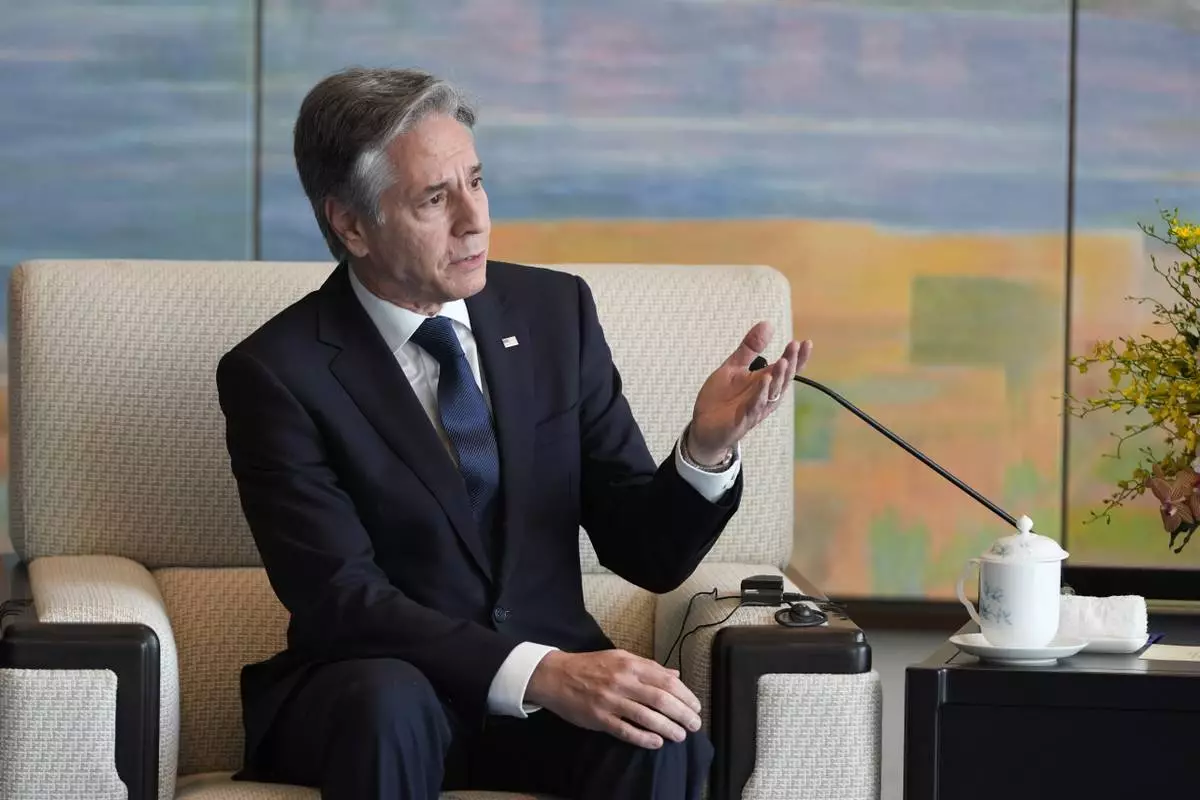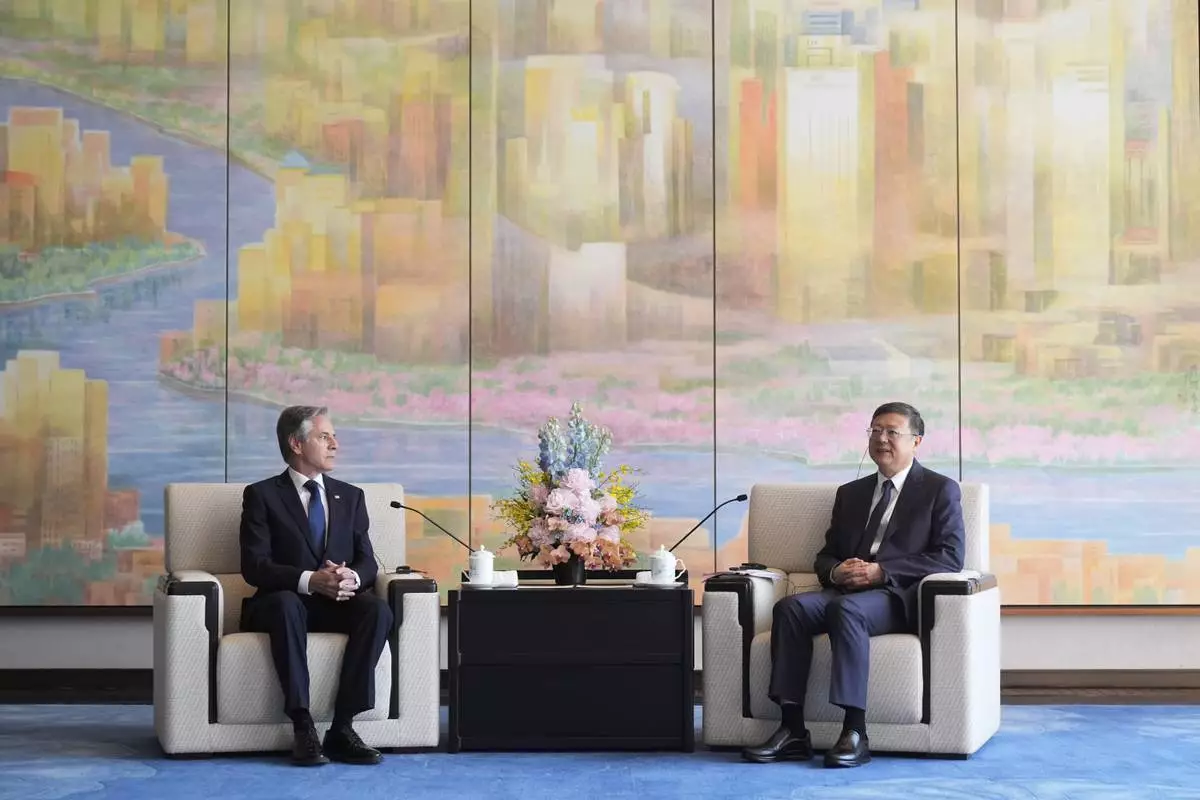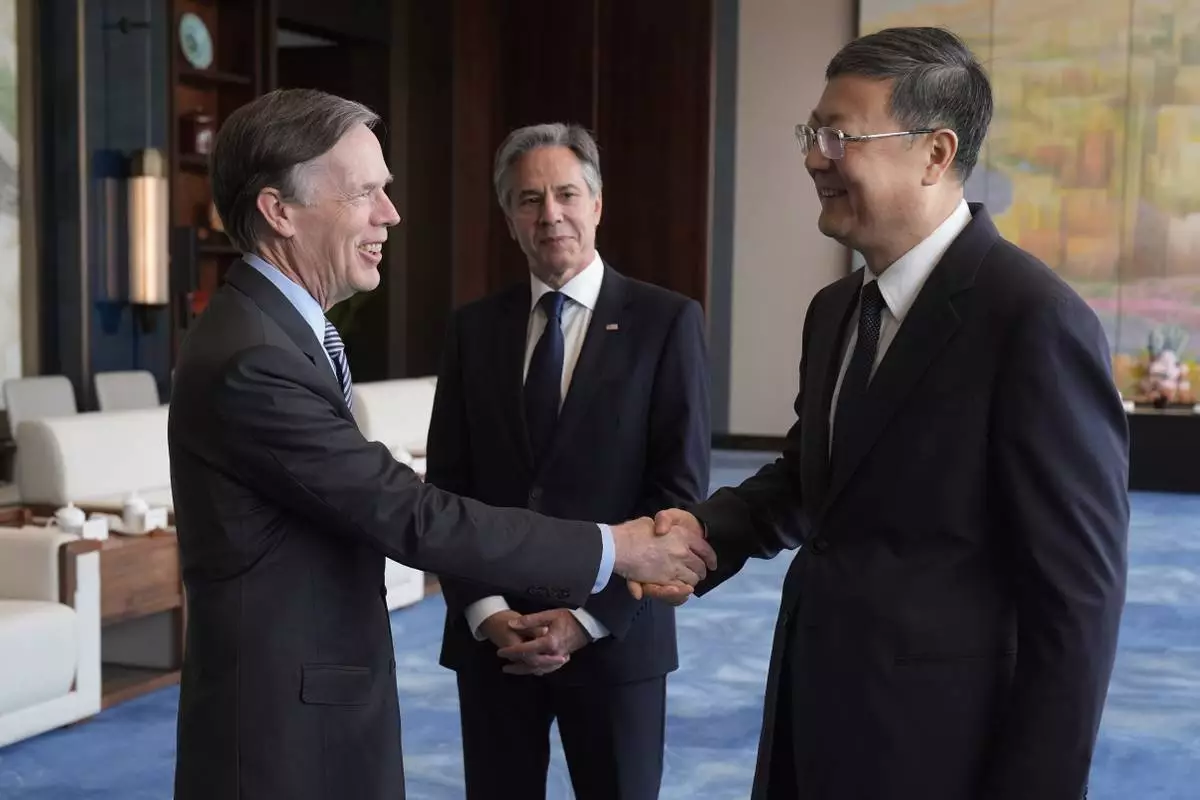U.S. Army Air Corps veteran Daniel Crowley endured more than three years of slave labor while being held prisoner by Japan during World War II.
This week, the 96-year-old is in Hawaii to participate in a dedication that honors about 400 Allied prisoners killed when a Japanese ship transporting them to Japan from the Philippines was sunk by U.S. forces unaware they were on board. The men are in 20 separate graves marked as "unknowns" in the National Memorial Cemetery of the Pacific, which is located inside an extinct volcanic crater also known as Punchbowl.
On Wednesday, Crowley will help dedicate a memorial stone for the prisoners at the cemetery in Honolulu.
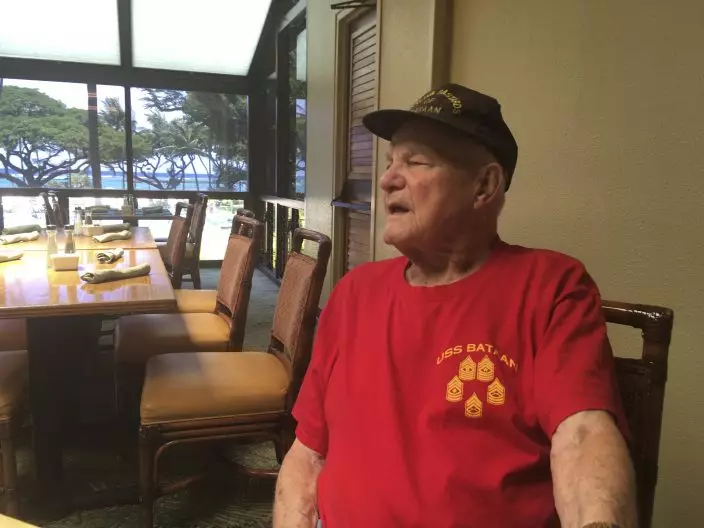
In this Monday, Aug. 13, 2018, photo, Daniel Crowley, a 96-year-old U.S. Army Air Corps veteran from World War II who was held by Japan as a prisoner of war in the Philippines and Japan, speaks during an interview in Honolulu. Crowley is visiting Honolulu to help dedicate a new memorial marker honoring U.S. and Allied prisoners of war killed when U.S. planes bombed a Japanese freighter transporting the POWs. (AP PhotoAudrey McAvoy)
"These are men from the United States Armed Forces who were ignominiously thrown in a pit without marking by the country, our country," Crowley said. "It was a sad thing that they were never recognized before they were buried together in a mixed-up grave with no marker."
The men were on board the Japanese freighter Enoura Maru in what is now Kaohsiung, Taiwan, when planes from the USS Hornet aircraft carrier bombed it on Jan. 9, 1945. The Enoura Maru hadn't been marked as having POWs on board so the pilots didn't know they were attacking some of their own. The 400 were buried in a mass grave near the harbor. The U.S. military retrieved the remains in 1946 and sent them to Hawaii for burial.
The group includes not just Americans but also Australians, Canadians, British, Norwegians and citizens of what is now the Czech Republic.
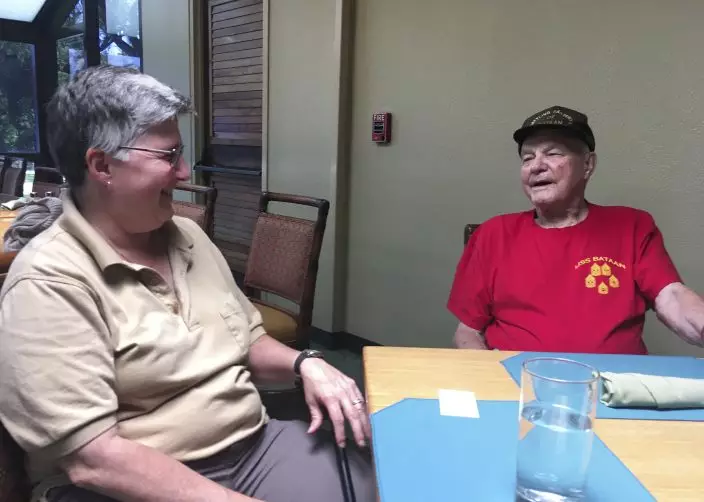
In this Monday, Aug. 13, 2018, photo Daniel Crowley, right, a 96-year-old U.S. Army Air Corps veteran from World War II who was held by Japan as a prisoner of war in the Philippines and Japan, speaks with his wife, Kelley Crowley, during an interview in Honolulu. (AP PhotoAudrey McAvoy)
Crowley, who lives in Simsbury, Connecticut, is familiar with some of their ordeal as he experienced a version of it himself.
The Army shipped him to the Philippines in 1941 after he enlisted as an 18-year-old in Greenwich. It was a tropical paradise at first, he said, until Japan attacked in December.
The Army gave him and his fellow soldiers little to no training and equipped them World War I-era rifles. By April, his commanders surrendered thousands of U.S. forces at Bataan. Crowley escaped to Corregidor Island, where he fought alongside U.S. Marines for another month. This time, he was taken into Japanese custody and paraded down the streets of Manila.
Eighteen months of brutal labor building an air strip on the Philippine island of Palawan followed.
"If you didn't move it, you were beaten immediately. Nothing was held back. They'd swing for your head with a pickaxe handle," he said.
Each prisoner would get about 600 calories worth of food a day — just enough to keep them alive, he said.
Crowley's ship took 17 days to reach Japan from the Philippines after taking a circuitous route to avoid attacking U.S. planes.
The conditions on the ships transporting prisoners to Japan were so horrific the Americans called them "hellships."
Crowley recalls being held below deck in such cramped conditions he could only squat — not lie down or stand. The prisoners had to defecate and urinate where they were, leaving their waste to cascade down to platforms below where more prisoners were held.
"You were showered constantly," he said.
Their captors lowered rice to them once a day in a bucket that had earlier held excrement. The prisoners had to reach into the bucket for their share. Sometimes the men fought.
"Some men lost it completely and sank their teeth into the nearest person for liquid. They wanted a drink. There was no water ration," Crowley said.
Each day they'd collect those who had died and throw them over the side of the ship. That was actually a good job to have, Crowley said, because it meant you could get fresh air.
"It's hard to really describe in graphic enough detail for mixed readers of a family newspaper," Crowley said.
Once in Japan, Crowley spent the rest of the war working in two different copper mines.
After the war, he found a stigma followed those who had been prisoners of the Japanese military. Major companies wouldn't hire them. His older brother told him not to tell anyone he was a POW.
"They felt you couldn't be mentally balanced if you had been through this nightmare," he said. Crowley made a living in sales by commission.
He counts himself lucky to have survived. Many others didn't make it — especially in the first six months after they were surrendered in the Philippines.
"I had a tenacious desire to live, I guess," Crowley said. "I was going to beat it. I was going to get home."



